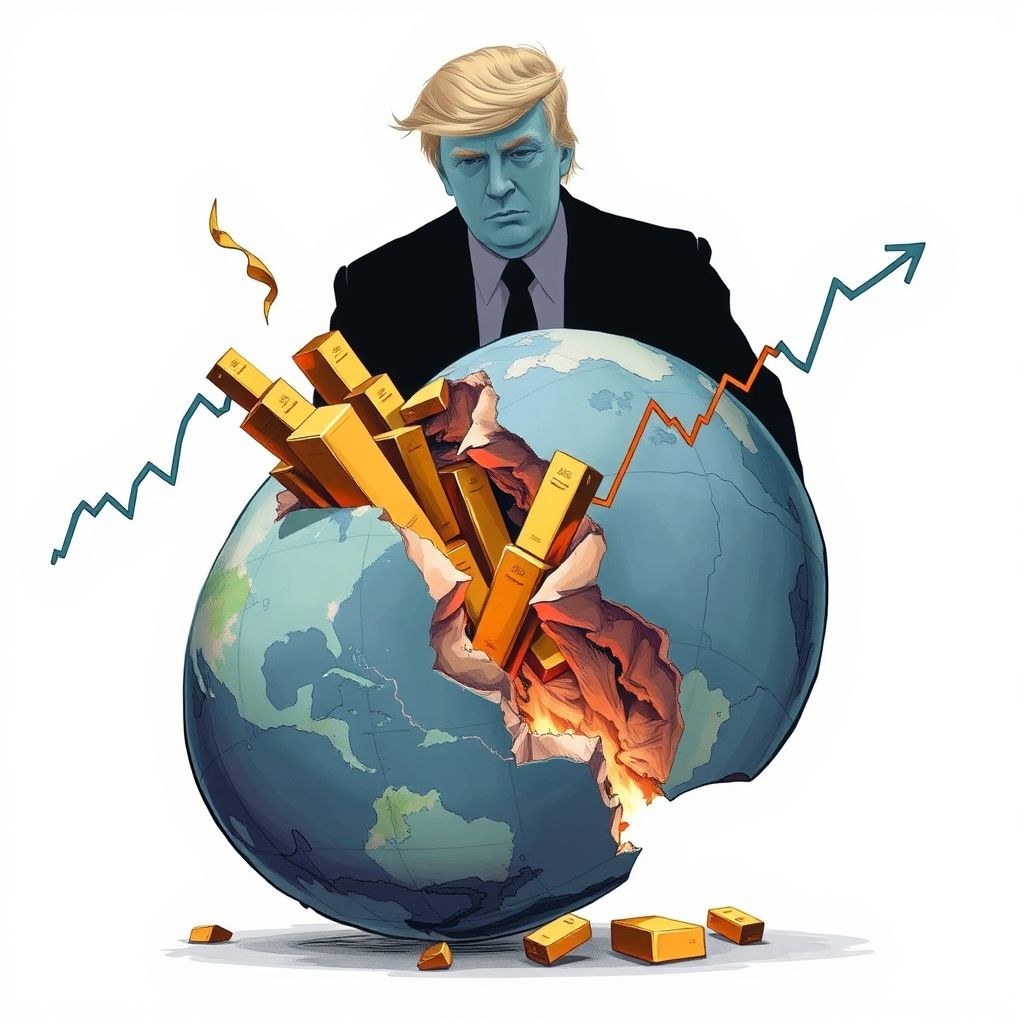Trump's Tariffs Send Markets Plunging, Gold Soars

Global markets reacted sharply to the announcement of sweeping new tariffs imposed by US President Donald Trump, triggering a sell-off in stocks, a surge in bond yields, and a record-breaking climb in gold prices. The tariffs, unveiled Wednesday, apply a baseline 10 percent levy on all imports, with significantly higher rates targeting key trading partners including China (34 percent), the European Union (20 percent), Japan (24 percent), India (26 percent), Vietnam (46 percent), and South Korea (25 percent). Trump also moved to close a loophole allowing low-value shipments from China, impacting major online retailers.
The immediate market response was overwhelmingly negative. Nasdaq futures plummeted 4 percent, while S&P 500 futures fell 3.3 percent and Nikkei futures dropped over 4 percent. Apple shares experienced a nearly 7 percent decline in after-hours trading. Australian blue-chip stocks opened lower, with the benchmark ASX200 index down 1.96 percent shortly after opening, as traders digested the impact of the 10 percent US tariffs on Australian exports. The energy and financial services sectors were particularly hard hit on the ASX200, shedding over two percent. Tokyo’s Nikkei index fell more than three percent at the open, and Van Eck’s Vietnam ETF saw an 8 percent drop.
Amidst the stock market turmoil, investors flocked to safe-haven assets. The price of gold surged past its previous record, reaching over $3,150 an ounce. The US dollar strengthened against most currencies, except for the Japanese yen, which saw a significant increase to 148.15 per dollar. Oil prices initially rose but ultimately settled in negative territory, reflecting concerns that a potential global trade war could dampen demand.
Analysts are largely critical of the tariff announcement, characterizing it as exceeding worst-case expectations. Wedbush analysts described the situation as such, while IG market analyst Tony Sycamore warned that expectations of a US recession would rise dramatically if the tariffs aren’t quickly negotiated down. U.S. interest rate futures jumped as investors priced in slower US growth and a higher probability of rate cuts.
The move is a significant escalation of trade tensions and carries substantial risks for the global economy. While Trump claims he is being “very kind” by only imposing half the tariffs levied by other countries on US exports, the potential for retaliatory measures from trading partners is high. This could lead to a damaging cycle of escalating tariffs and significantly higher prices for consumers and businesses worldwide. The long-term consequences of this policy remain uncertain, but the initial reaction suggests a period of increased volatility and economic uncertainty is likely. It’s a bold, and arguably reckless, gamble with the stability of global trade, prioritizing short-term political gains over long-term economic health.